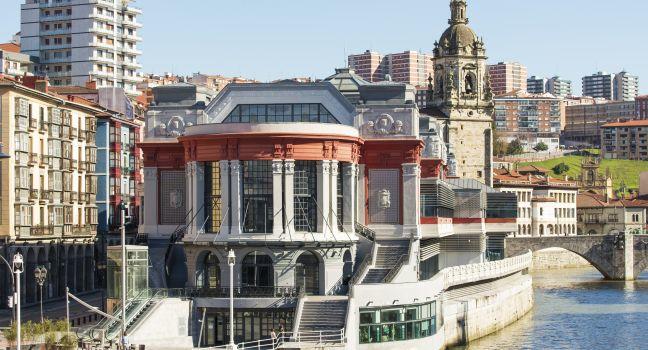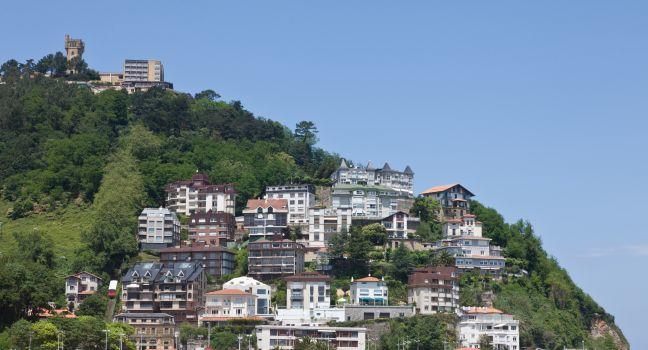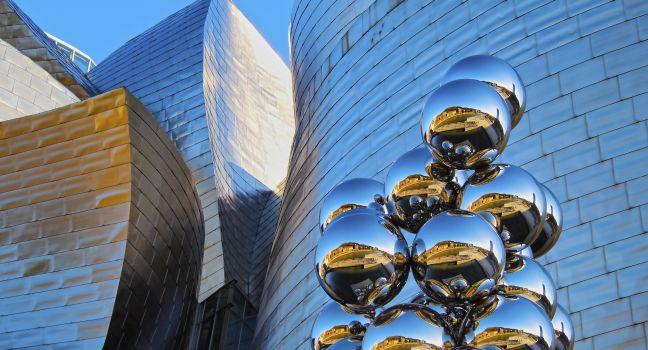It's hard to overstate the importance of the Guggenheim museum, Frank Gehry’s architectural masterpiece of undulating titanium and chaotic, nature-inspired forms built on the riverfront. It all began when Guggenheim director Thomas Krens set out to find a venue for a major European museum and came up dry in Paris, Madrid, and other major cities. Having glumly accepted an invitation to Bilbao, Krens was out for a morning jog when he found what he was looking for—an empty riverside lot once occupied by shipyards and warehouses. He had a vision of a building that would symbolize Bilbao's macro-reconversion from steel to titanium, from heavy industry to art—and one that would be a nexus between the early-14th-century Casco Viejo and the 19th-century Ensanche, between the wealthy right bank and working-class left bank of the Nervión.
Frank Gehry's gleaming brainchild opened in 1997 and was hailed as "the greatest building of our time" by architect Philip Johnson and "a miracle" by Herbert Muschamp of the New York Times. At once suggestive of a silver-scaled fish and a mechanical heart, Gehry's sculpture in titanium, limestone, and glass echoes the Contemporary and Postmodern artworks it contains. The smoothly rounded jumble of surfaces and cylindrical shapes recalls Bilbao's shipbuilding and steel-manufacturing past, while transparent and reflective materials create a shimmering, futuristic luminosity. With the final section of La Salve Bridge over the Nervión folded into the structure, the Guggenheim is both a doorway to Bilbao and an urban forum: the atrium looks up into the center of town and across the river to the old quarter and the tranquil green hillsides of Artxanda, where livestock graze. Gehry achieved his goal of building a structure in which "you [could] feel your soul rise up."
The free audio guide offers an excellent synopsis of modern art, contemporary art, and the Guggenheim.
The collection, described by Krens as "a daring history of the art of the 20th century," consists of more than 250 works, most from the New York Guggenheim and the rest acquired by the Basque government. The second and third floors reprise the original Guggenheim collection of abstract expressionist, cubist, surrealist, and geometrical works. Legendary artists of the 20th century (including Kandinsky, Picasso, Ernst, Tàpies, Pollock, and Calder) are joined by more contemporary figures (Bruce Nauman, Txomin Badiola, Miquel Barceló, Jean-Michel Basquiat, and others). The ground floor is dedicated to large-format and installation work, some of which—like Richard Serra's Snake—was created specifically for the space. Claes Oldenburg's Knife Ship, Robert Morris's walk-in Labyrinth, and pieces by Joseph Beuys, Christian Boltanski, Richard Long, Jenny Holzer, and others round out the heavyweight division in one of the largest galleries in the world.
Expect lines on holidays and weekends, especially late morning through early afternoon. Cut the wait time by buying tickets ahead of time online or around closing time for the following day.






